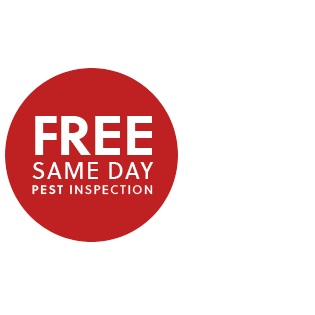Taking the sting out of stinging insects
While some stinging insects are beneficial to our environment, others – especially wasps and hornets – can pose a threat to people. According to the National Pest Management Association, allergic reactions to stinging insect bites send more than 500,000 people to the emergency room each year.
The intense heat that accompanies summer in California speeds up the breeding process for stinging insects, and it increases the insects’ activity level as they forage for food to feed their growing colonies, according to Blair Smith, Corporate Manager of QA and Technical Development for Clark Pest Control.
“Continuing drought conditions have eliminated many of the natural food sources for wasps and hornets and forced them to seek out new food sources,” says Smith. “This has also widened the area where they forage. Yellowjackets that used to forage in vacant fields will now explore your backyard in search of food.”
Yellowjackets and wasps
In California there are two distinct types of social wasps – yellowjackets and paper wasps. Yellowjackets are by far the most troublesome group, especially such ground- and cavity-nesting wasps as the Western yellowjacket, which tend to defend their nests vigorously when disturbed.
Clark, your friendly termite, mosquito, pest management, and grounds care expert, would like to share some important information on stinging insects and how to protect you and your family.
Foraging yellowjackets are primarily scavengers. They show up at picnics and barbecues, around garbage cans, at dishes of dog or cat food placed outside, and where ripe or overripe fruit are accessible. At certain times and places, the number of scavenger wasps can be quite large.
Yellowjackets are mostly scavengers, ruining barbecues, entering garbage cans, frequenting dog food bowls, and alighting on overripe fruit. Their defensive behavior gets more aggressive as populations become larger at the same time that food becomes scarce.
Yellowjackets can nest in a variety of locations in and around structures, including trees, bushes, in the ground, attics, crawlspaces, gutters, sheds, building overhangs, and decks. They deserve your respect.
Paper wasps are much less defensive and rarely sting humans. They tend to shy away from human activity except when their nests are located near doors, windows, or other high-traffic areas. Their nests are relatively small and are never covered with a paper envelope (that is, when you look at the nest, you can see the wasps and the comb; yellowjacket nests are covered with a paper envelope). Paper wasp nests only reach a colony size of about 100 wasps.
If you come across a nest, proceed with caution, because yellowjackets can be very aggressive. Removal of any stinging insect nest is not a do-it-yourself job, and should be performed by a licensed pest management professional.
Stinging insect prevention tips
To help protect you and your family from stinging insects this summer, Clark offers the following tips:
- Keep food covered: During a picnic or cookout, cover all food when outside and be sure to keep tight fitting lids on trash bins.
- Avoid excessive use of fragrances: Avoid excessive use of perfume or cologne, as yellowjackets and other stinging insects are attracted to sweet-smelling fragrances. When possible, choose unscented shampoos, soaps, lotions, and sunscreen.
- Adjust your wardrobe: Avoid wearing dark colors and floral prints, because these patterns can attract stinging insects. Wear closed-toe shoes, especially in grassy areas where hornets and other pests often nest.
- Empty the trash: Empty garbage cans regularly, and wash recycling bins to eliminate the sugary residue from soda and beer cans that yellowjackets favor.
- Remain calm, cool, and collected: Do not swat a nearby pest or flail in panic – these movements may provoke an attack. Instead, remain calm and slowly walk away from the area. The insect should fly away without causing any harm.
Got questions about pests? Call Clark
If you’re seeing increased stinging insect activity around your yard, call or text (800) WE-NEED-YOU (936-3339) or email us at clarkcares@clarkpest.com. We are ready to help protect you and your family.
Until next time, the pest management professionals at Clark Pest Control thank you for helping to keep unwanted pests out of your home.


